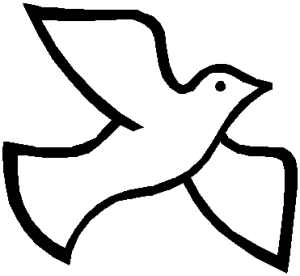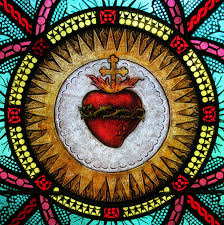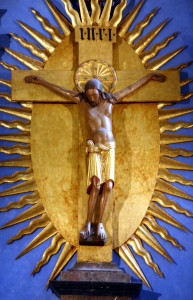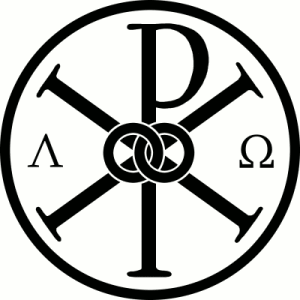Science and religion are like two different countries that one can visit separately but not both at the same time. My thoughts today on religion would probably have had me burned at the stake in former times and today as well if that practice were still legal, which some folks in our nation would cheer if it did return.
I was raised by two loving parents who attended rather a fundamentalist church in Indiana, a church that was all white with doctrines so narrow and specific that they defined and demanded absolutely precise rules be obeyed regarding baptism, communion, tithing, and scriptural interpretation by the pastor only, which gave the congregants a comfortable, if questionable, sense of direction. I attended that church through high school, battling with my parents and the minister over their literal views on the Bible, the Old Testament of which was, to me, a wonderland of violence, egomania, intense cruelty, and blind obedience that made me gasp in bewilderment at the reverence people showed it.
When I escaped to college, I discovered a wider view of religious experience through friends who were Roman Catholic, Episcopalian, Jewish, Muslim, Lutheran, and Buddhist. A door was opened to let in fresh air about what faith could mean through more sensitive, thoughtful, and tolerant views of whatever God might signify. It wasn’t that we all agreed, but we agreed to disagree and to find whatever tenets could be shared in the most universal ways. I no longer felt like a recalcitrant child being sent to his room for defying the powers that be.
My best experience with “formal” religion was with The Disciples of Christ, a much more liberal protestant faith begun in Scotland by Thomas Campbell in the early 19th Century. I joined the congregation near our college campus in 1964 and stayed with other Disciples congregations until I moved to Colorado in early January of 2008. I was an active member, serving on countless committees, being moderator (church board chair), deacon, and elder, as well as chair of the Pulpit Committee and Pastoral Relations Committee. I even wrote and gave sermons from time to time when the pastors were away. I felt at home with those people of faith, who allowed and encouraged a more analytical approach to religion (Is that an oxymoron?) and the search for individual views of faith, which for me became at once broader, yet more personal.
As I approach my 70th year in this world, my views have become more and more general, based upon common sense, science, and history itself, including my own history. I honestly don’t know if there was a resurrection or if there will be a Rapture, as many Christians believe so literally and staunchly. Such considerations to me are more in the realm of magic than practical thought. I’m actually the same person with or without them. I’m concerned with my time in this world and using that time to be the best person I can be, without the promise of a reward of some pie in the sky. I have not observed that religions of the world have made us treat each other any better. In fact, I have noticed that the history of world religion and its influences have scarred humanity with intolerance, hideous violence, and divisiveness on a scale without all of which we might have done a bit better, but certainly no worse.
The intolerance, exclusivity, and actual meanness of spirit I observe in so much religious fervor today make it too easy for me to question its value, except for creating groups that huddle together perhaps in delusional pockets of US against THEM factions that seem finally not to have brought us any closer to world peace and brotherhood. Arguments over religious dogma seem such a horrific waste of time and energy, not to mention the barriers turning self-righteous groups to hatred, fear, and weapons of mass destruction, too often in the names of their gods. I will certainly never understand the ardor and even ire with which so many human beings insist upon “saving” others through conversion. Saving them from what?
Maybe I’m too rational and will have to call myself an agnostic, since I am apparently no longer capable of declaring belief in things of which I’m not at all sure anymore. No one has come back from the grave (except in legend or religious doctrine) to speak of another life after death. I simply don’t know, but I don’t believe not knowing should be considered a crime either. Believing and wanting to believe are not the same thing any more than wondering and knowing are the same thing. My morality is based upon how I treat my fellow beings and the planet which I inhabit. Those are realities I can observe and influence daily. They are not speculative but are physical realities. Postponed rewards are abstractions to me that some religions dangle before us, sometimes based more upon pointless suffering and personal denial than upon actual good deeds and practical help given to our fellow creatures. I do believe in the important immediacy of charitable acts encouraged by some religions, but I don’t expect a halo or wings after I die as rewards for my kindness. Good will is its own reward. Jumping through doctrinal hoops won’t enhance that reward or be a substitute for it. We are in this world together. All of us. Our purpose includes taking care of each other and nurturing the planet itself. Too much religion today has forgotten these things in favor of some kind of glory in being “right.”
Despite my being a doubting Thomas, I still believe in a very broad vision of God. I cannot and do not wish to nail his image (no pun intended) or to specify what or where He is. I don’t know how or why creation was accomplished, but I can put a name to it by calling it God. Scientists know much more than I do about origins of solar systems and life, but I would wager that when it comes to God or life after death, theologians don’t know any more than I or anyone else does, for all their dazzling verbal acumen and millions of pages written about what is perhaps only a collective hunch, as Lily Tomlin might express it. My comfort zone should fit some level of reality itself (whatever that turns out to be), not reality and doctrine made to fit my comfort zone, which is what I see so often by people who cherry pick or choose, cafeteria-style what they want or need from their religious beliefs.
Strangely enough, I still pray for all those who are suffering and also for the healing of our planet. There may be a power we don’t yet understand but that exists in a large network kind of way among all human beings through some cosmic energy. I don’t know, but I call it God in any case. I don’t think prayers are like text messages to some awesome deity, but I do believe in some way that the universe and its physical laws are basically user-friendly, involving some level of karma, which is no stranger than believing about water being turned into wine, walking upon water, or the reality and significance of the empty tomb. As human beings, we must deal with supposition when it comes to the “maybe” of religion.
I know that I’m not alone in being skeptical about so much formal doctrine that so many other people seem to accept blithely and without question or doubt. My heart (not a very scientific source for much except pumping blood) tells me that the only sin in this world is deliberately hurting ourselves or others. This should be no less valid than a friend’s heart telling him that there is a holy trinity or a Rapture on its way. I suppose if I lived my life based just upon what I can know factually, there would be no literature, poetry, music, or art that would mean much to me. There might be only books of chemistry, physics, and mathematics. Then we would be automatons and not concern ourselves with the mystery of remote and essentially unknowable things, the last of which perhaps really is God. JB









